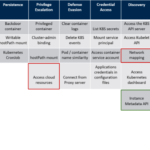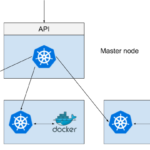Kubernetes’ ‘allowPrivilegeEscalation’ is a useful but poorly understood security hardening setting. Let’s dive into how it works and debunk some common myths about it.
Tag: kubernetes
Privilege Escalation in AWS Elastic Kubernetes Service (EKS) by compromising the instance role of worker nodes
In this post, we discuss the risks of the AWS Instance Metadata service in AWS Elastic Kubernetes Service (EKS) clusters. In particular, we demonstrate that compromising a pod in the cluster can have disastrous consequences on resources in the AWS account if access to the Instance Metadata service is not explicitly blocked. Introduction For the purposes of this post, we’ll use an EKS cluster running Kubernetes v1.17.9 and created with eksctl. We could also have created the cluster using Terraform or CloudFormation. Once we created the cluster, we can use the AWS CLI to update our kubectl configuration file forContinue reading… Privilege Escalation in AWS Elastic Kubernetes Service (EKS) by compromising the instance role of worker nodes
They told me I could be anything, so I became a Kubernetes node – Using K3s for command and control on compromised Linux hosts
In their RSA 2020 talk Advanced Persistence Threats: The Future of Kubernetes Attacks, Ian Coldwater and Brad Geesaman demonstrated that K3s, a lightweight version of Kubernetes, can be used to backdoor compromised Kubernetes clusters. This post describes how K3s can also serve as an easy command and control (C2) mechanism to remotely control compromised Linux machines.


